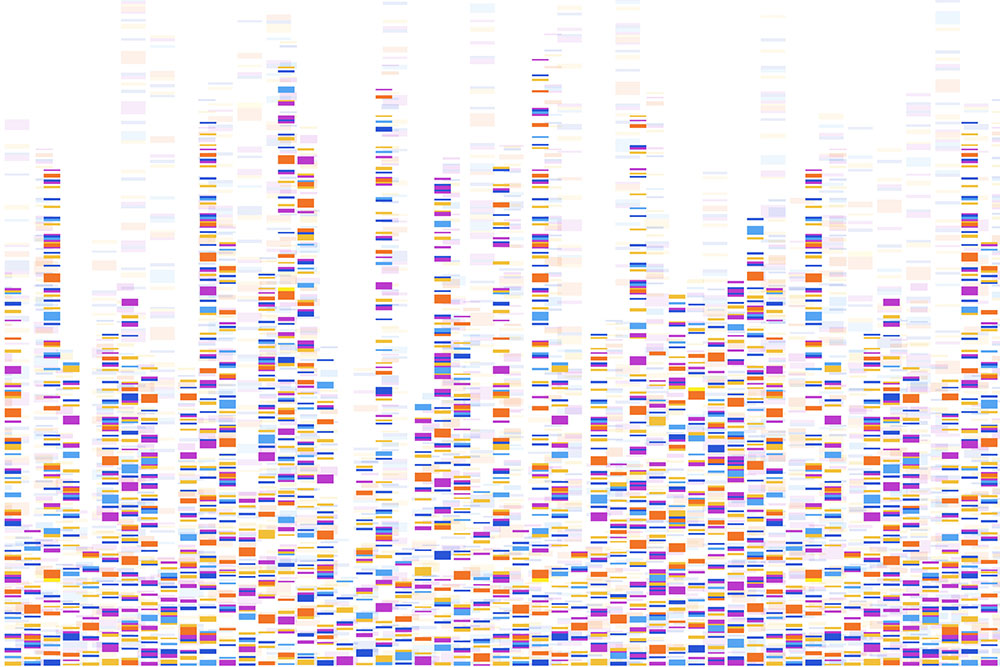The Future of Precision Medicine in Singapore
Tue, 07/06/2021 - 12:00
SGInnovate had the privilege of hosting Professor Patrick Tan, Executive Director, Precision Health Research Singapore (PRECISE), for a presentation and discussion about Singapore's National Precision Medicine Strategy. Read more on how precision medicine can help deliver care in a highly personalised way.
"Precision medicine" is a fast-emerging field in the medical landscape. Similar to the concept of personalised medicine, which adjusts treatments based on the patient's history and preferences, precision medicine analyses genetic, environmental, and lifestyle factors to select specific and customised treatments for a patient.
Precision medicine seeks to deliver care in a highly personalised way. By better understanding a patient's genetic factors, on top of traditional data sources like diet or social history, doctors can reach quicker diagnoses and reduce the likelihood of missteps caused by incompatible medication or a 'one-size-fits-all approach’.
Last month, SGInnovate had the privilege of hosting Professor Patrick Tan, Executive Director, Precision Health Research Singapore (PRECISE), for a presentation and discussion about Singapore's National Precision Medicine Strategy. At this insightful session, he shared how initiatives like PRECISE can use genetic data to transform patient outcomes and improve the way healthcare solutions are delivered in Singapore.
Precision medicine changes the game for public healthcare
Scientists have known for years that different genetic groups of people have different likelihoods for certain diseases. In 1993, the World Bank estimated that genetic diseases constitute "up to 40% of the requirements for chronic care in paediatric practice". An early example of this comes from research conducted in the 1980s and 1990s, which revealed that African populations are far more likely to have the mutation which causes sickle cell anaemia.
By understanding these genetic differences, we can select the safest, most effective treatments for different patients. After all, genetic differences do not just impact the probability of disease. They can also affect how patients react to medication—gene variations impact the speed at which drugs are absorbed in the body, rendering some treatments ineffective or even dangerous.

Currently, a lack of Asian representation in modern genomic databases and studies has led to a poorer understanding of genetic diseases in Asians—especially those living abroad. Most of the studies done so far, linking genetics to diseases, have been done in majority Caucasian populations in Europe, skewing our understanding of such relationships and potentially creating unequal gaps in the way healthcare is delivered. To echo this point, Prof Tan mentioned that different types of cancer, such as stomach cancer and nasopharyngeal cancer, and diabetes tend to present differently in Asian populations.
"By understanding the Asian phenotype more accurately and adding to the global library of information, perhaps we can treat these populations in a more holistic way," explains Professor Tan. With more accurate genetic information, doctors and researchers could:
- Accurately predict attacks or diseases before they happen, and create a preventative plan of action
- Determine which subtypes of diseases patients are most likely to contract
- Optimise treatments, avoiding costly medication that might not even be effective
- Reduce the likelihood of adverse drug reactions
- Understand pathways that drive health and diseases
- Develop new therapies and platforms that can be used to accelerate innovation further
Many global initiatives—led by governments and medical organisations— seek to drive the growth of precision medicine. While there is no single "best" initiative, each study adds a piece of data to the wider puzzle and contributes to a more accurate and complete understanding of our genetic differences and diversity: the key here lies in global collaboration with local nuance. Progress on these databanks helps researchers understand inherent differences in genetic makeup that affect the prevalence or presentation of diseases in different populations across the globe.
Piecing the global genetic puzzle together

In Singapore, our NPM began with the SG10K Health cohort study, which set out to perform whole genomic sequencing (WGS) on a sample of 10,000 Singaporeans. The first of a three-phase programme spread out over ten years, the valuable findings, once completed, could represent almost 80% of the Asian population based on Singapore's three major ethnic groups, Chinese, Malay, and Indian.
These three ethnic groups, which form the bulk of Singapore's population, have traditionally been underrepresented in past genetic studies, extending the potential impact of the research outcomes far beyond Singapore's shores and benefitting patients of Asian descent worldwide. Despite Singapore's small size, such efforts contribute to the repository of global precision medicine knowledge, complementing similar efforts like All of US and Genomics England in other countries.
Through this project, Professor Tan hopes to see more industry partnerships changing how such data is used, stored, and mined. What if private companies could develop a suite of affordable tests capable of testing the genetic compatibility of certain medicines? What if health practitioners could search a global gene database before prescribing medication? He believes that the opportunities for collaboration are endless.
The ultimate goal, he says, is establishing win-win collaborations for public health, private companies and startups, and people around the world. The first phase has since been completed, resulting in the world's most extensive genetic databank for multi-ethnic Asian populations, with Phase II now underway as part of Singapore’s Research, Innovation, and Enterprise (RIE) 2025 plan. Over the next four years, researchers have set their sights on analysing the genetic makeup of 100,000 healthy Singaporeans and up to 50,000 patients with specific diseases to gain deeper insights into Asian phenotypes.
From the bench to patients’ beds
To round things off, Professor Tan shared that educating and engaging the public is the final piece of the puzzle and a significant success factor. Outreach and responsible communication with various stakeholders is vital to ensuring that patients understand how their medical and genetic information is used and how such potential treatments are being developed. By addressing the different concerns and demands directly and swiftly, it is then easier to build trust in such scientific innovations within the community.
Precision medicine has the potential to disrupt costs and make specialised, personalised treatments accessible for all. Circling back to his earlier emphasis on partnerships, Professor Tan called out the need to galvanise the wider Deep Tech economy and collaborate with partners beyond academia. Whether it's translating research into clinical practice or driving industry innovation and creating high-value jobs in the healthcare and biotech sectors, these partnerships with private and public sector players will be the key to creating new opportunities.
Be part of the SGInnovate community and connect with us here. For the latest updates, news and happenings follow us on social media.
Trending Posts
- From satellites to startups, Singapore’s space sector is pushing new frontiers
- How leaders should rethink cybersecurity strategy
- How to Future-Proof a Career in Deep Tech? Start here.
- The future of fusion energy: What will it take to bring the power of the stars to earth?
- Keeping satellites safe: How CYSAT Asia 2026 is tackling space cybersecurity






